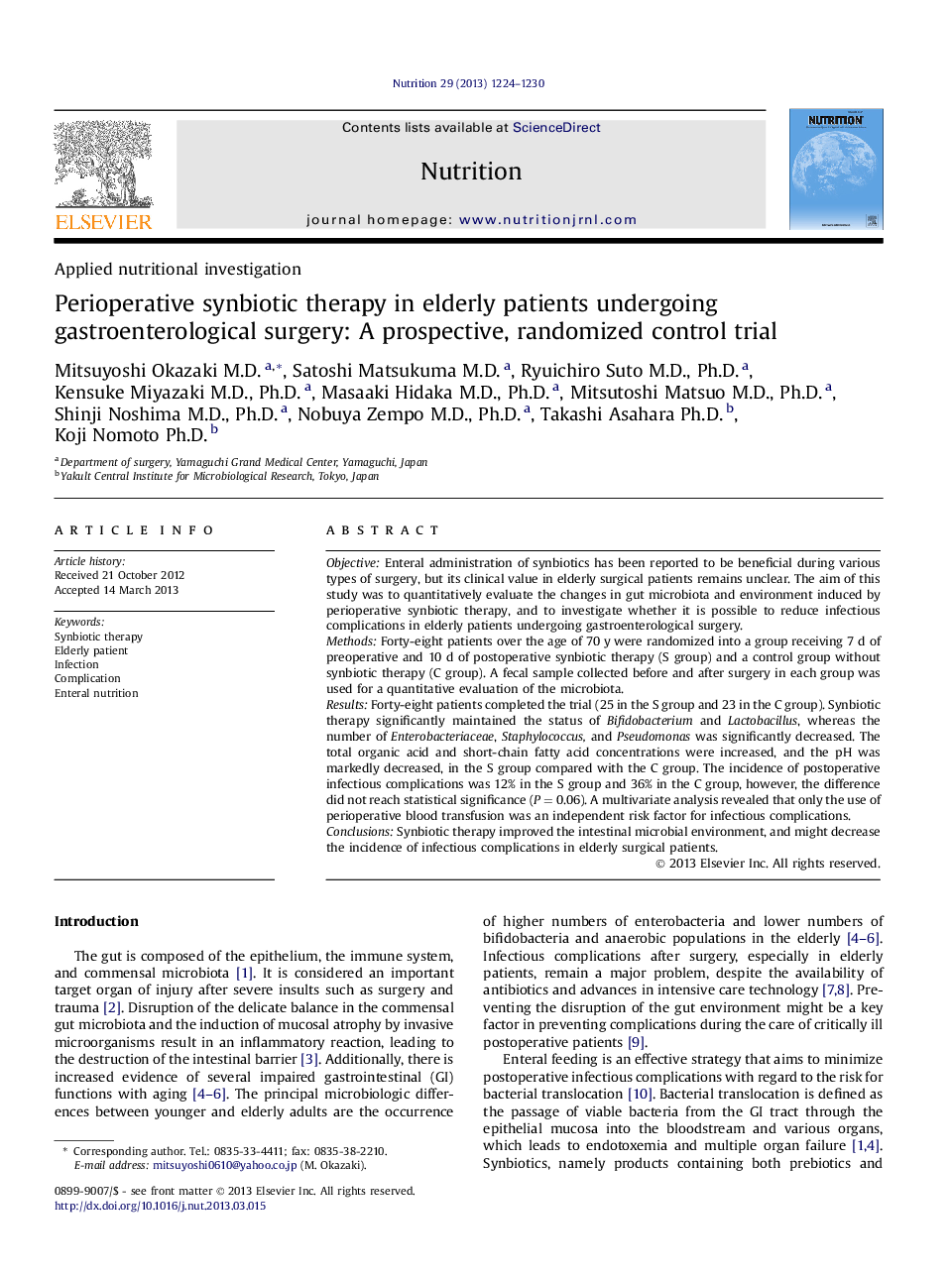| کد مقاله | کد نشریه | سال انتشار | مقاله انگلیسی | نسخه تمام متن |
|---|---|---|---|---|
| 3276416 | 1208558 | 2013 | 7 صفحه PDF | دانلود رایگان |

ObjectiveEnteral administration of synbiotics has been reported to be beneficial during various types of surgery, but its clinical value in elderly surgical patients remains unclear. The aim of this study was to quantitatively evaluate the changes in gut microbiota and environment induced by perioperative synbiotic therapy, and to investigate whether it is possible to reduce infectious complications in elderly patients undergoing gastroenterological surgery.MethodsForty-eight patients over the age of 70 y were randomized into a group receiving 7 d of preoperative and 10 d of postoperative synbiotic therapy (S group) and a control group without synbiotic therapy (C group). A fecal sample collected before and after surgery in each group was used for a quantitative evaluation of the microbiota.ResultsForty-eight patients completed the trial (25 in the S group and 23 in the C group). Synbiotic therapy significantly maintained the status of Bifidobacterium and Lactobacillus, whereas the number of Enterobacteriaceae, Staphylococcus, and Pseudomonas was significantly decreased. The total organic acid and short-chain fatty acid concentrations were increased, and the pH was markedly decreased, in the S group compared with the C group. The incidence of postoperative infectious complications was 12% in the S group and 36% in the C group, however, the difference did not reach statistical significance (P = 0.06). A multivariate analysis revealed that only the use of perioperative blood transfusion was an independent risk factor for infectious complications.ConclusionsSynbiotic therapy improved the intestinal microbial environment, and might decrease the incidence of infectious complications in elderly surgical patients.
Journal: Nutrition - Volume 29, Issue 10, October 2013, Pages 1224–1230